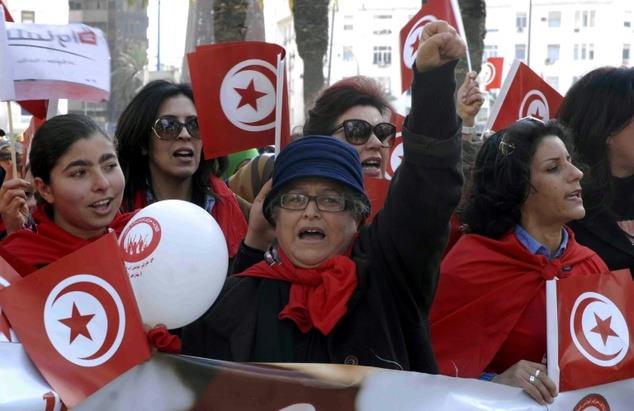
Despite Tunisia's marriage law, more democratic changes are needed
London – Tunisia is once again lauded for itsprogress inhuman rights. President Beji Caid Essebsi last week scrapped a 44-year old bill prohibiting . Despite such a progressive move, many in Tunisia still feel that their country faces issues that threaten democracy and equality in their country.
Tunisia is often labelled the most progressive country in the region. Human rights commentators, while recognising issues within the country, still consider itto be a model Arab nation for women rights and equality. Tunisia's first president since independence Habib Bourguiba strove to promote liberal and secular values enabling women to have prominent positions in society. Now women will be freer to choose their partners. Such marriages did take place, in limited amounts, but men were forced to undergo illegitimate conversions, just to show the authorities "proof" they had converted.Essebsi first announced his wishes to make this change last month. I heard many Tunisian women express their views at the time.There was much – along with his ability to make such a change, believing he would face much opposition from society and fellow parliamentarians. His comments fell on Tunisian Women's Day, raising suspicions that it was a publicity stunt, to appease those who had for long demanded such reforms to be made.
Many were quite rightly stunned, believing it would take years to pass. Others were convinced the idea would never actually be implemented.Yet despite such a remarkable, historic transformation, much more needs to be done. Many Tunisian activists and human rights workers feel this is merely a small step, and other issues need to be addressed.
Tunisian-based civil society activist, who campaigns for democratization, Mariem Masmoudi told Morocco World News that while this is a positive move that will enable women, like men, make their own decisions, the government urgently needs to prioritize other problems that also directly impact the lives of Tunisians, such as fair wages and educational reforms."I look forward with infinite anticipation for President Essebsi and PM Chahed to get back to the important work of improving the real political, economic, and social realities of the Tunisian people,"Masmoudi added.
After all, corruption still lingers in Tunisia, and many issues relating to equality and justice still need addressing. While this law relating to marriage was passed, Tunisia is still rife with unemployment and .Others feel this way. Amna Guellali, a Tunisian researcher at Human Rights Watch, lauds this landmark decision as a sign that women's rights are improving in Tunisia. Yet she warns that this law comes amid a widespread level of corruption that still exists within the Tunisian establishment.
"Unfortunately, it was abrogated one day after the Tunisian parliament adopted a controversial law enshrining impunity for former regime violations. So while it is important, it has to be read in the broader picture of a country still struggling with corruption and not yet immune from a relapse in autocracy," Guellali told Morocco World News.Jonathan Fenton-Harvey Is UK-based freelance journalist, focussing on political and social issues in the Middle East and North Africa. His work has been featured in Al Araby Al Jadeed, Middle East Eye, Morocco World News, Informed Comment, Counterpunch, Tribune and others. He also study History and Politics at the University of Exeter. You can follow on Twitter @jfentonharvey

Legal Disclaimer:
MENAFN provides the
information “as is” without warranty of any kind. We do not accept
any responsibility or liability for the accuracy, content, images,
videos, licenses, completeness, legality, or reliability of the information
contained in this article. If you have any complaints or copyright
issues related to this article, kindly contact the provider above.


















Comments
No comment